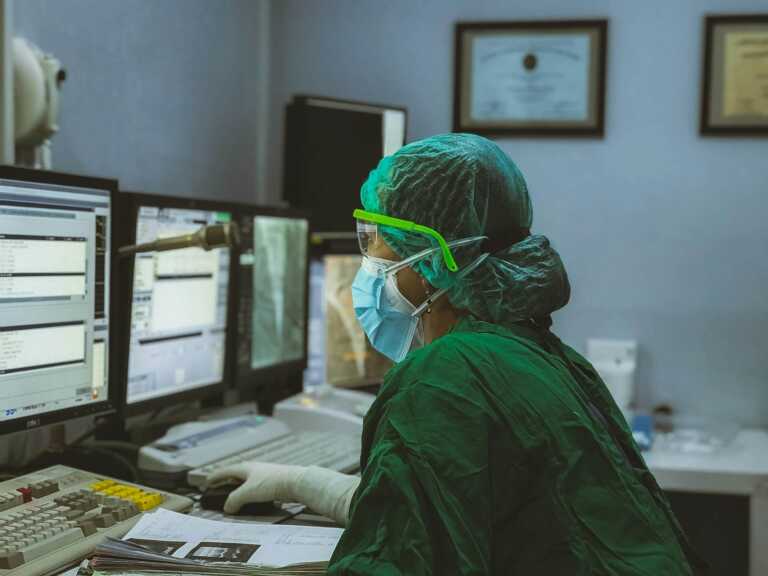Accidents happen every day – whether it’s a minor fender bender or a more serious life-altering event. And in the aftermath, our lives can be turned upside down. We may find ourselves feeling overwhelmed, anxious, and uncertain about the future. In these moments of despair, it’s hard to imagine finding anything positive in such a difficult situation. However, that is exactly what this blog post is all about – understanding why staying positive matters after accidents and how it can help us cope with the challenges that come our way.

Your Legal Rights
After an accident, it’s important to be aware of your legal rights. These rights vary depending on the nature and circumstances of the accident, but generally, they involve the right to seek compensation for injuries and damages. If you’re a victim of someone else’s negligence, you may be entitled to a settlement to cover medical expenses, lost wages, and other related costs. Always consult with a personal injury law firm to fully understand your rights and options. This knowledge can provide a sense of control and empowerment during an uncertain and difficult time. Just knowing that you have the right to seek justice can help ease some of the stress and frustration that often come after an accident.
Building Resilience
Resilience is a critical factor in coping with the aftermath of an accident. It’s the ability to bounce back, to adapt to challenging circumstances, and to keep moving forward in the face of adversity. Building resilience doesn’t mean ignoring the difficulty or pain that comes with an accident. Instead, it’s about acknowledging the situation, allowing yourself to feel, and then finding ways to rise above it.
This can be achieved through various means such as maintaining a positive outlook, seeking social support, and utilizing healthy coping strategies like regular exercise, sufficient sleep, and balanced nutrition. Each step you take towards building resilience not only helps you manage stress but also aids in quicker recovery, both physically and emotionally. It’s okay to ask for help. You are not alone in this journey, and there are resources and people ready to stand by your side.
Reducing Stress and Anxiety
Living through the aftermath of an accident can be a stressful and anxiety-ridden time. It’s completely normal to have these feelings, but it’s also important to manage them so they don’t hinder your recovery. One effective way to reduce stress and anxiety is through mindfulness and relaxation techniques. These can include deep breathing exercises, yoga, or meditation, which promotes a calm mind and helps to relax the body.
Another useful strategy is to maintain a routine. Having a structured daily schedule can provide a sense of normalcy and control in your life, reducing feelings of chaos and uncertainty. Be sure to incorporate elements of self-care in your routine, such as reading, taking a warm bath, or spending time with loved ones. Finally, don’t underestimate the power of positive affirmations. Regularly reminding yourself of your strength and resilience can reinforce positivity and help to curb negative thoughts.
Enhancing Physical Recovery
Physical recovery after an accident can often be a long and challenging path. However, a proactive and positive approach to your rehabilitation process can significantly contribute to better outcomes. Regularly consult with your healthcare team, including physicians, physiotherapists, and occupational therapists, to design and follow a personalized recovery plan. This plan may include a structured exercise regimen to regain strength and mobility, pain management techniques, and strategies to adapt to any temporary or permanent physical changes.
It’s also crucial to pay attention to your nutrition during this time. A balanced diet rich in proteins, vitamins, and minerals can expedite healing and contribute to overall well-being. Hydration is equally important, so ensure adequate fluid intake.
Patience is key in this process. It’s okay to have good days and bad days, and progress may be gradual. However, with consistent effort, positivity, and the right support, you can enhance your physical recovery and regain your vitality.

Fostering a Supportive Environment
Creating a supportive environment is a fundamental step in the healing process after an accident. This involves surrounding yourself with people who understand your situation and offer emotional and practical help. Friends, family, and support groups can provide a safe space to express your feelings, share experiences, and receive advice. Remember that it’s appropriate to rely on people during difficult times.
Furthermore, seeking professional help such as therapists or counselors can be extremely beneficial. They can provide strategies to cope with emotional turmoil and guide you toward a positive mindset. Equally important is the role of your medical team, who can address your physical health concerns and aid in your recovery journey.
Staying positive after an accident is not about denying the difficulty of the situation, but rather finding ways to cope and bounce back stronger. Remember to be kind to yourself and utilize the resources available to you. And above all, never lose hope – because better days are always ahead.





